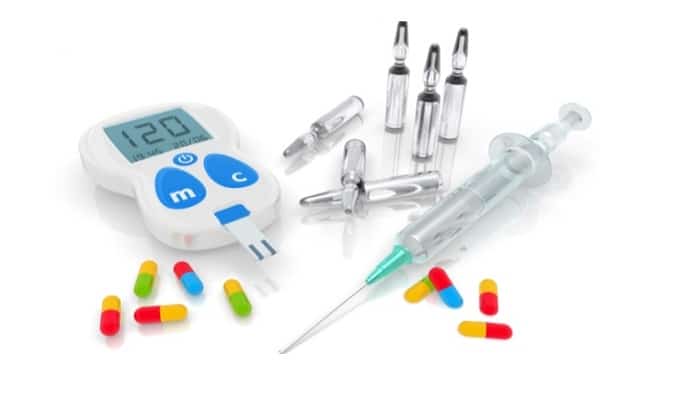New data presented showed that Jardiance® reduced the risk of cardiovascular death compared with placebo when added to standard of care in adults with type 2 diabetes and peripheral artery disease.
These results, from a post-hoc analysis of the landmark EMPA-REG OUTCOME® trial, were shared as an oral presentation on behalf of Boehringer Ingelheim and Eli Lilly and Company at the American Heart Association® (AHA) Scientific Sessions 2017 in Anaheim, Calif. and simultaneously published online in the AHA’s journal, Circulation.
“Peripheral artery disease, one of the most common cardiovascular complications associated with type 2 diabetes, increases the risk of death from cardiovascular causes,” said Subodh Verma, M.D., cardiac surgeon-scientist at St. Michael’s Hospital and professor at the University of Toronto. “There is an urgent need for treatment options that can improve cardiovascular-related outcomes in people with type 2 diabetes and peripheral artery disease.”
Approximately one in three people with diabetes over the age of 50 has peripheral artery disease, a narrowing of the arteries outside the heart, usually those leading to the arms, legs and feet, due to a buildup of fatty deposits. Peripheral artery disease can be life-threatening when blockages restrict circulation, causing damage to limbs, and can also be associated with damage to vital organs such as the heart, kidneys and brain. If peripheral artery disease is not managed properly, it can also lead to amputation, which may result in hospitalization, disability and death.
At study start, 21 percent of the more than 7,000 EMPA-REG OUTCOME trial participants had existing peripheral artery disease. The analysis in this patient population showed that compared with placebo, on top of standard of care:
• Jardiance reduced the risk of cardiovascular death by 43 percent
• Death from any cause was reduced by 38 percent and hospitalization for heart failure by 44 percent
• Risk for the composite endpoint of cardiovascular death, non-fatal heart attack or non-fatal stroke was reduced by 16 percent
• New or worsening kidney disease, known as nephropathy, was reduced by 46 percent
• Overall, the cardiovascular and renal effects observed in patients with peripheral artery disease were consistent with previously reported results of the overall trial population in EMPA-REG OUTCOME
Overall side effects and serious side effects were balanced between the Jardiance and placebo groups in adults with and without peripheral artery disease. In the group with peripheral artery disease, lower-limb amputations occurred in 5.5 percent of those treated with Jardiance and 6.3 percent of those treated with placebo. In the group without peripheral artery disease, lower-limb amputations occurred in 0.9 percent of those treated with Jardiance and 0.7 percent of those treated with placebo.
“Through ongoing sub-analyses of the EMPA-REG OUTCOME data, we are gaining a better understanding of how Jardiance may help a wide range of people living with type 2 diabetes and its complications,” said Rogelio Braceras, M.D., therapeutic area head, Clinical Development & Medical Affairs, Metabolism, Boehringer Ingelheim Pharmaceuticals, Inc. “The data presented and published at the AHA Scientific Sessions showed that Jardiance reduced the risk for cardiovascular death and kidney disease in this highly vulnerable population of people with type 2 diabetes and peripheral artery disease.”
Jardiance is the first and only oral type 2 diabetes medicine approved to reduce the risk of cardiovascular death in adults with type 2 diabetes and established cardiovascular disease.
About Diabetes and Cardiovascular Disease
Approximately 30 million Americans and an estimated 415 million people worldwide have diabetes, and nearly 24 percent of Americans with diabetes—or more than 7 million people—are undiagnosed. In the U.S., approximately nine percent of those aged 18 and older have diabetes. Type 2 diabetes is the most common type, accounting for an estimated 90 to 95 percent of all diagnosed adult diabetes cases in the U.S. Diabetes is a chronic condition that occurs when the body does not properly produce or use the hormone insulin.
Due to the complications associated with diabetes, such as high blood sugar, high blood pressure and obesity, cardiovascular disease is a major complication and the leading cause of death associated with diabetes. People with diabetes are two to four times more likely to develop cardiovascular disease than people without diabetes. Approximately 50 percent of deaths in people with type 2 diabetes worldwide and approximately two-thirds of deaths in people with type 2 diabetes in the U.S. are caused by cardiovascular disease. In the U.S., healthcare costs for managing cardiovascular conditions in patients with diabetes totaled more than $23 billion in 2012.
Having a history of diabetes at age 60 can shorten a person’s lifespan by as much as six years compared with someone without diabetes. And having both diabetes and a history of heart attack or stroke at age 60 can shorten a person’s lifespan by as much as 12 years compared with someone without these conditions.
About Lilly Diabetes
Lilly has been a global leader in diabetes care since 1923, when we introduced the world’s first commercial insulin. Today we are building upon this heritage by working to meet the diverse needs of people with diabetes and those who care for them. Through research and collaboration, a wide range of therapies and a continued determination to provide real solutions—from medicines to support programs and more—we strive to make life better for all those affected by diabetes around the world.
For more information, visit www.lillydiabetes.com
About Eli Lilly and Company
Lilly is a global healthcare leader that unites caring with discovery to make life better for people around the world. We were founded more than a century ago by a man committed to creating high-quality medicines that meet real needs, and today we remain true to that mission in all our work. Across the globe, Lilly employees work to discover and bring life-changing medicines to those who need them, improve the understanding and management of disease, and give back to communities through philanthropy and volunteerism.
This press release contains forward-looking statements (as that term is defined in the Private Securities Litigation Reform Act of 1995) about Jardiance and reflects Lilly’s current belief. However, as with any pharmaceutical product, there are substantial risks and uncertainties in the process of development and commercialization. Among other things, there can be no guarantee that future study results will be consistent with the results to date or that Jardiance will receive additional regulatory approvals. For further discussion of these and other risks and uncertainties, see Lilly’s most recent Form 10-K and Form 10-Q filings with the United States Securities and Exchange Commission.
P-LLY
MPR-US-100131
CONTACT:
Lauren Murphy, MBA
Associate Director, Public Relations
Boehringer Ingelheim Pharmaceuticals, Inc.
Email: lauren.murphy@boehringer-ingelheim.com
Phone: (203) 448-1982
Molly McCully
Communications Manager
Lilly Diabetes
Email: mccully_molly@lilly.com
Phone: (317) 478-5423



















